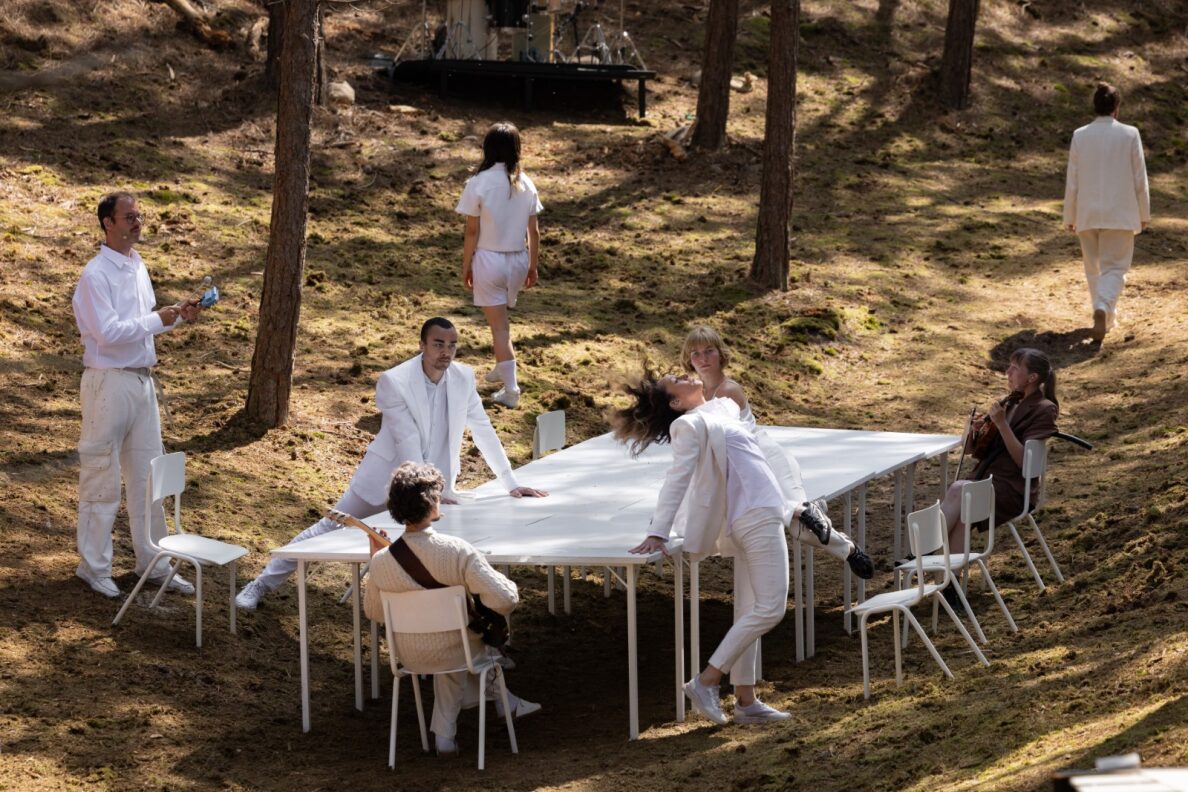Research Findings from When did you leave?
By Matthijs Rooduijn Liza Mügge Nik Linders Piotr Breedveld Daniel Komaromy Anvita Pant Valerio Placidi Claire Hartzuiker | June 22 2025
On 22nd of June 2025 we concluded our collaborative show When Did You Leave? Over the course of ten days we performed 18 times for around 3500 festival visitors. Oerol is an ideal place for our study because its audience tends to be more progressive than the average Dutch citizen. Can radical messages especially from the right convince even a progressive audience when told through gripping stories?
Earlier this week the Dutch National Coordinator for Counterterrorism and Security (NCTV) reported that young people are radicalizing online. This is just one example of a broader trend: political ideas once considered marginal are gaining traction. In the Netherlands and throughout Europe parties with radical views are becoming more influential. Why do these ideas appeal to so many people?
We believe that storytelling plays a key role in spreading radical political ideologies. Various studies have shown that realistic and relatable narratives with compelling characters and dialogue can make facts and arguments more persuasive.
To better understand how stories help spread radical messages we launched a project with music theatre company Via Berlin. Together with writers, directors, actors, musicians, choreographers, sound engineers, set designers and programmers we developed a ‘theatre experiment’; both a social science experiment and a musical theatre performance.
Radical messages and counter messages
The play centers on a family coming together to celebrate Grandpa Vincent’s eightieth birthday and explores both family tensions and the diverse political views of the characters.
Through these characters we explore six political messages including four associated with the radical right:
- Nativism: Foreigners are a threat to the national community
- Populism: A corrupt elite betrays the people
- Protective masculinity: Men are strong and women are weak and must be protected
- Tradwife ideal: A woman’s place is in the home with her family
The other two characters embody opposing values:
- Tolerance: Diversity and pluralism strengthen society
- Caring masculinity: Real masculinity means caring for others with respect and equality
These messages are told through personal stories. At the beginning of the performance each audience member is randomly assigned a headset and a tablet linked to one character. They start with a short questionnaire, and then hear their character’s story including how they arrived at their worldview. Afterwards they complete a second questionnaire so we can measure any shifts in opinion.
For example, Paul represents the populist message. He talks about his life; how he feels let down by society and blames much of his hardship on a corrupt elite. Audience members who listen to Paul are in the “populism condition.”
There are six such “conditions” corresponding to the six political messages plus a control group: Grandpa Vincent who shares no explicit political message. We compare the results of the questionnaires before and after the story to those from the control group to see if people’s views were influenced.
Additional methods
We also conduct focus groups after each show to hear how people experienced the characters, their interactions and their messages. In addition we collect physiological data (such as skin conductance) to measure emotional arousal. Participants also share their emotions and impressions of each character. All these data will be analyzed in future research.
Collaborating with theatre artists
Our collaboration with Via Berlin is unique. Together we create emotionally powerful stories that genuinely move audiences. In scientific terms: we design powerful experimental narratives.
We also work together on science communication. After each performance we explain our research aims and share preliminary findings. In this way the audience not only sees how stories can influence their thinking but also how social science research is done.
With this project we aim to better understand how radical messages influence opinions and how stories might help build bridges in a divided society. The family in the play gradually falls apart; a situation many people recognize from their own lives, as confirmed in our focus groups. In future research we want to explore how storytelling can increase mutual understanding in a polarized world.
A video by Claire Hartzuiker gives an impression of the theatre experiment.
Special thanks to Bert Bakker Jeroen Janssen Tom van Laer Carla Roos and Gijs Schumacher.
The research is funded by two grants from the Dutch Research Council (NWO): a Vidi grant led by Matthijs Rooduijn (Hot Politics Lab) and a Vici grant led by Liza Mügge (Politics of Diversity).
About the Authors
● Matthijs Rooduijn Associate Professor of Political Science at the University of Amsterdam and director of the Hot Politics Lab
● Liza Mügge Associate Professor of Political Science at the University of Amsterdam and director of the Amsterdam Research Center for Gender and Sexuality
● Nik Linders Postdoctoral researcher in the Vici project titled Political Masculinities in Europe
● Piotr Breedveld Researcher and IT specialist at the University of Amsterdam
● Daniel Komaromy PhD candidate in Political Science
● Anvita Pant PhD candidate in Ethics Governance and Society at Vrije Universiteit Amsterdam
● Valerio Placidi PhD candidate in Theoretical and Applied Neuroscience at Sapienza University of Rome
● Claire Hartzuiker Freelance journalist video producer and singer
